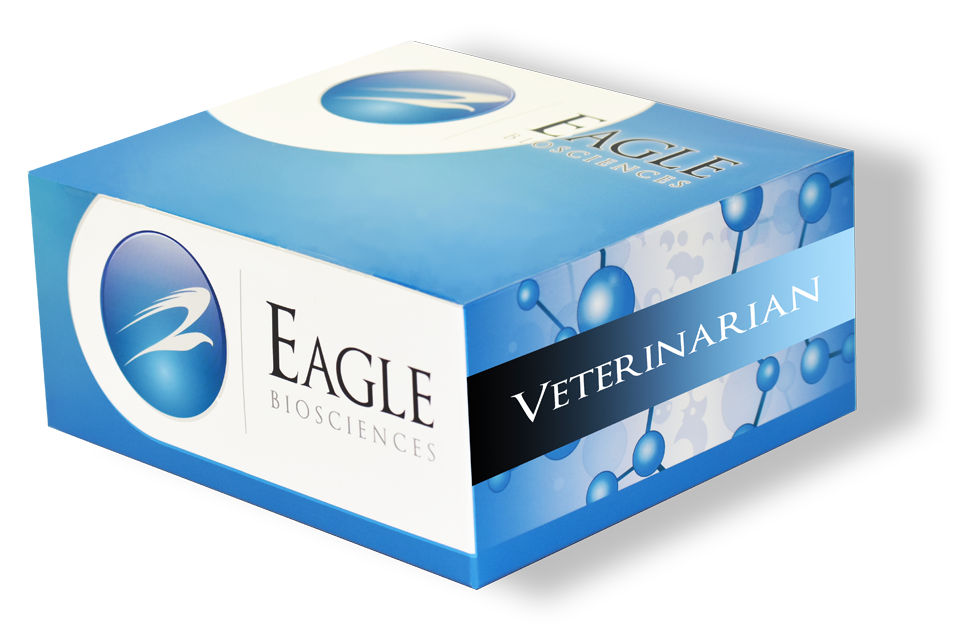Dog Thymidine Kinase (TK1) ELISA Assay Kit
The Dog Thymidine Kinase (TK1) ELISA Assay Kit is For Research Use Only
Size: 1×96 wells
Sensitivity: 0.094 ng/ml
Dynamic Range: 0.078 ng/ml – 5.0 ng/ml
Test Time: 2 hrs 30 mins
Sample Type: Plasma, Serum
Sample Size: 100 μL
Alternative Names: Dog TK1
Assay Principle
In this assay the thymidine kinase (TK1) present in samples reacts with the anti-TK1 antibodies which have been adsorbed to the surface of polystyrene microtitre wells. After the removal of unbound proteins by washing, the Detection Antibody, biotin conjugated anti-TK1, is added and complexes are formed. Following a wash step, the horseradish peroxidase (HRP) conjugated Streptavidin is added and complexes are formed. After another washing step, the complexes are assayed by the addition of a chromogenic substrate, 3,3’,5,5’-tetramethylbenzidine (TMB). The quantity of bound enzyme varies directly with the concentration of TK1 in the sample tested; thus, the absorbance, at 450 nm, is a measure of the concentration of TK1 in the test sample. The quantity of TK1 in the test sample can be interpolated from the standard curve constructed from the standards, and corrected for sample dilution.
SPECIMEN COLLECTION AND HANDLING
All blood components and biological materials should be handled as potentially hazardous. Follow universal precautions when handling and disposing.
If blood samples are clotted, grossly hemolyzed, lipemic, or the integrity of the sample is of concern, make a note and interpret results with caution.
The sample collection and storage conditions listed below are intended as general guidelines. Sample stability has not been evaluated.
- Serum samples – Blood should be collected by venipuncture. The serum should be separated from the cells after clot formation by centrifugation. Remove serum and assay immediately or aliquot and store samples at –80°C (preferably) or -20°C. Avoid repeated freeze-thaw cycles.
- Plasma samples – Blood should be collected into a container with an anticoagulant and then centrifuged. Assay immediately or aliquot and store samples at –80°C (preferably) or -20°C. Avoid repeated freeze thaw cycles.
Related Products
Thymidine Kinase 1 ELISA Assay
Canine SAA ELISA Assay
Canine Transferrin ELISA Assay



